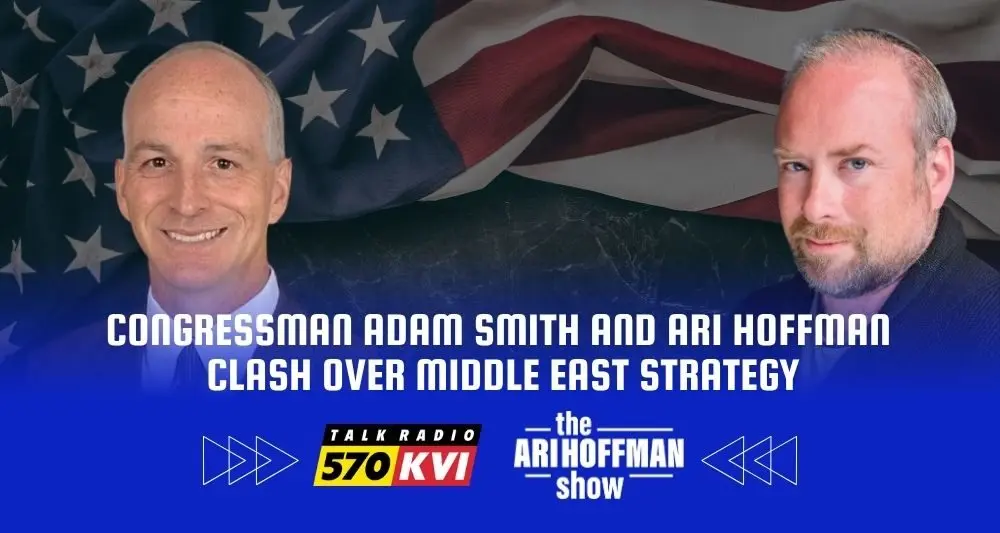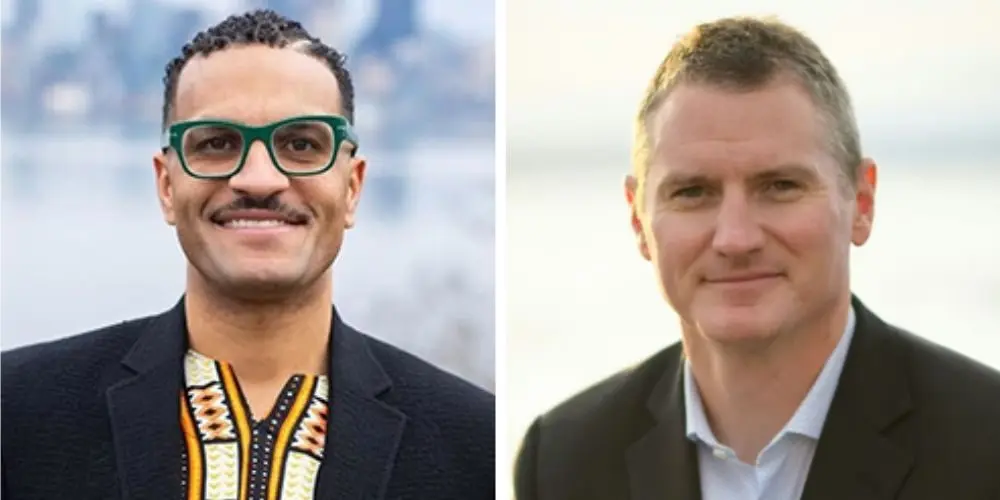
A recent appearance by Congressman Adam Smith on The Ari Hoffman Show on Talk Radio 570 KVI sparked a pointed and wide-ranging debate over the path forward in the Israel-Hamas conflict. Smith, who represents the Seattle area and serves as the ranking member of the House Armed Services Committee, defended his support for a ceasefire, while host Ari Hoffman strongly questioned the logic and potential consequences of such a move.
The exchange centered on Smith’s recent email to constituents, in which he cited a Wall Street Journal op-ed by William A. Galston titled “Hamas Will Never Surrender.” The op-ed acknowledges Hamas’s refusal to disarm or recognize Israel, but Smith interpreted it as a justification for seeking a ceasefire to prevent further humanitarian catastrophe and begin building a political alternative to Hamas.
"Mahmoud Abbas has been in power for 19 years in a four year term. The last time there were elections in the Palestinian Authority, the Backstreet Boys were the #1 band in the world. So why do we think that a guy who has the Pay for Slay program is actually going to be a willing… pic.twitter.com/CP1F7xQfMJ
— Ari Hoffman 🎗 (@thehoffather) August 4, 2025
“I don’t trust Hamas at all,” Smith said during the interview. He acknowledged that the group continues to embed within the civilian population and hijack humanitarian aid. However, Smith argued that Hamas and its backers, notably Iran and Hezbollah, have been significantly weakened. “They are not in the same position to reconstitute themselves as they were a year or two ago,” he said.
He warned that a prolonged military campaign would worsen the humanitarian crisis and make it more difficult to establish alternatives to Hamas leadership in Gaza. Smith cited a joint statement by 22 Arab states calling for new Palestinian leadership and suggested the international community should support those efforts.
Host Ari Hoffman pushed back, questioning how any Palestinian leadership could be trusted after October 7, the terror attack that ignited the war. “Those Arab countries want a Palestinian state, which essentially rewards what happened on October 7,” Hoffman argued, adding that Palestinian Authority President Mahmoud Abbas remains in power despite his expired term and runs a “pay-for-slay” program rewarding terrorism.
Smith emphasized the changing dynamics in the region, pointing to countries like Saudi Arabia and the UAE, which he said are now focused on stability and are no longer aligned with religious extremist movements. “They hate Hamas and the Muslim Brotherhood as much as Israel does,” Smith stated.
Hoffman argued that societal issues within Palestinian territories, especially decades of anti-Israel indoctrination in schools, prevent any real movement toward peace. “Not one Palestinian has tried to save a hostage,” Hoffman said, contrasting this with historical examples of Germans who risked their lives to protect Jews during the Holocaust.
"During World War II, there were thousands of Germans who saved Jews during the Holocaust? Not one Palestinian, not one. Has done anything to save the hostages."
My debate with @RepAdamSmith over trusting the Palestinian Authority pic.twitter.com/jtq9MHwTNu
— Ari Hoffman 🎗 (@thehoffather) August 4, 2025
Smith rejected the notion that all Palestinians are untrustworthy or that there is no one to work with. “If your position is we can’t work with any Palestinians, then what? We fight forever?” he asked. He acknowledged the profound challenges in Gaza but insisted there are groups working to push out Hamas and rebuild civil society. “You’ve got to give them some space and support,” he said.
Hoffman concluded that the difference between their positions comes down to expectations of what Palestinian society is currently capable of. “They want a new champion who can kill all the Jews and defeat Israel,” Hoffman said, citing long-standing indoctrination and a lack of credible leadership alternatives.
Smith, while conceding the difficulties, insisted that continued war without a plan for political transition is not sustainable. “Even Israel’s reputation and global standing is being harmed by the growing humanitarian crisis,” he said. He pointed to the ceasefire negotiated at the end of the Trump administration as a missed opportunity to de-escalate the war before it spiraled further.
Though the two didn’t find common ground, the exchange underscored the complexity of US foreign policy debates around Israel, Gaza, and the broader Middle East. Both agreed the conversation was necessary, even amidst profound disagreement.






